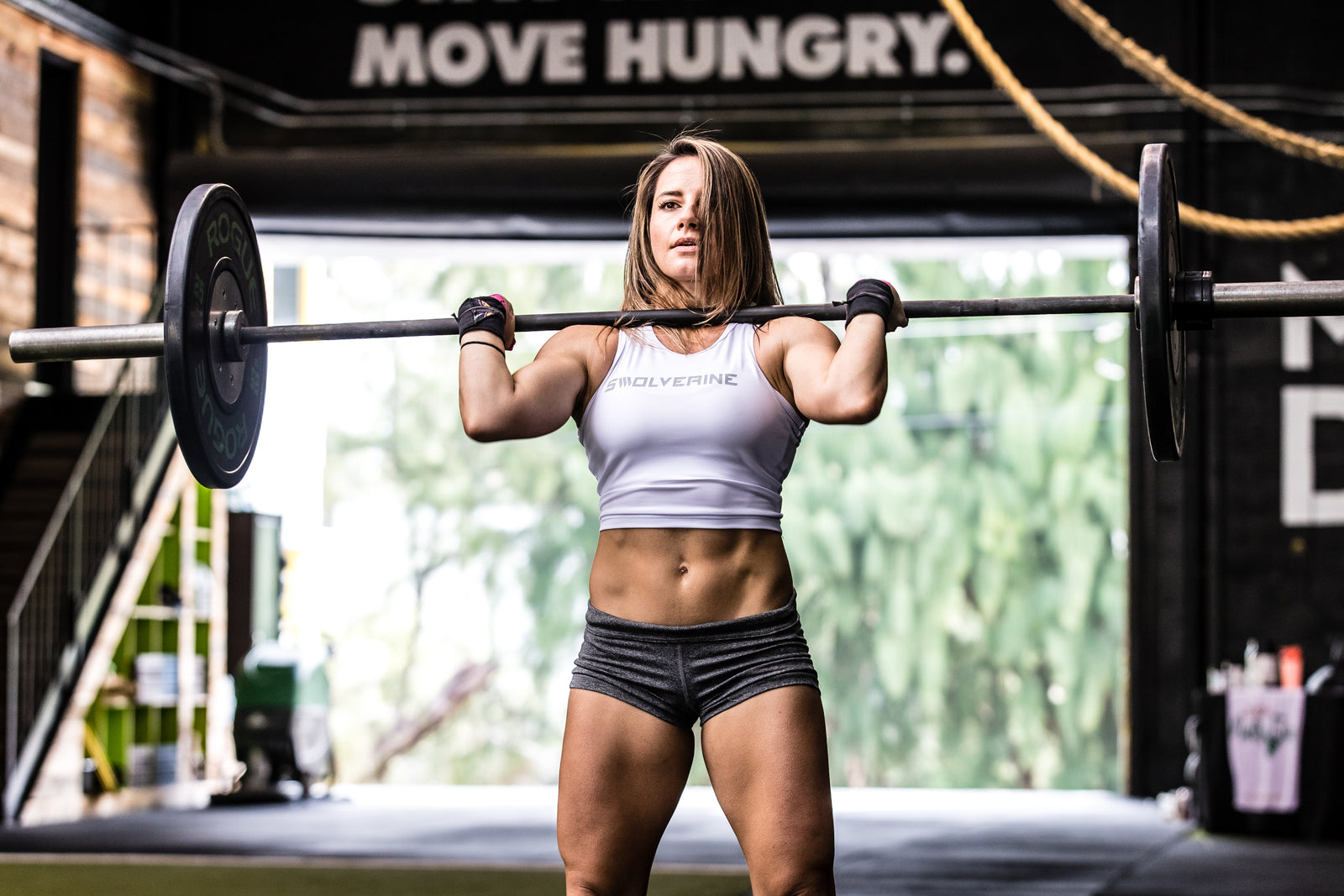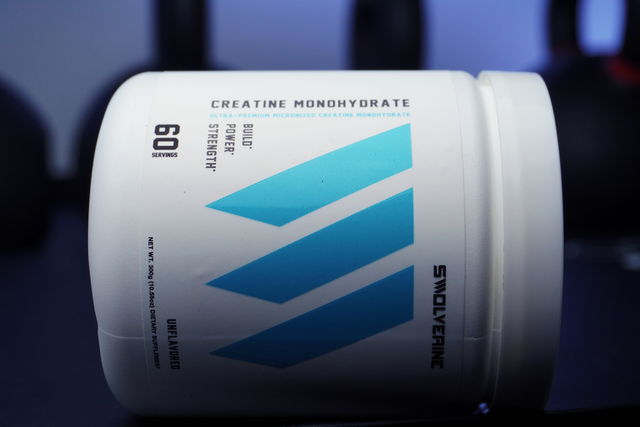You CrossFit. You started because you wanted to lose weight, get in shape, or tone up so you could finally have the body you've always dreamed of. But just like everything else, it's been weeks, maybe even months, and you're still not seeing the results that you've been patiently waiting for. You've gone to boot camps, tried fad diets, and time after time have failed miserably. The problem is your approach. And I'm here to tell you how you're going to get the results you want and what to do in order to keep them through intermittent fasting combined with CrossFit.
What Is Fasted-CrossFit?
Fasted-CrossFit, also known as (Intermittent Fasting combined with CrossFit) is exactly what it sounds like. Fasted-CrossFit. Interchangeable with Fasted-Cardio, but instead of running on the treadmill, we’re talking about early morning Metcon’s and AMRAPs, (aerobic and anaerobic exercise) while in a fasted state.
Your body enters a fasted state 8-12 hours after your last meal. Therefore, working out in the mornings in a fasted-state is the most efficient
Why would you ever do this? Let me explain. When your body enters a fasted-state low glycogen and insulin levels cause the body to shift energy utilization away from carbohydrates, allowing the recruitment of stored body fat for fuel. Therefore, intermittent fasting combined with Crossfit will result in burning body fat for fuel as your main energy source as opposed to burning carbohydrates or glycogen for energy.

What Is Intermittent Fasting?
Intermittent Fasting is not a diet, it's a pattern of eating. It's not about what you eat, it's about when you eat it. The simplest method for intermittent fasting is the 16/8 approach, which means to eat for 8 hours and fast for 16. You can pick any 8-hour window which works best for you and your training schedule. However, for the best results, you need to be in the fasted-state while you workout. Therefore, eating from 11 or noon, until 7 or 8 PM, and working out in the morning while in a fasted-state, will be the easiest method in accordance with Fasted-Crossfit.
RELATED ARTICLE The Quick Guide To Intermittent Fasting
Why Is Intermittent Fasting During CrossFit Important For Body Optimization?
After interviewing hundreds of Box Owners, the most popular reasons why someone joins a CrossFit Box is one of the three reasons below
-
You want to lose weight
-
You want to lose weight and gain muscle mass
-
You want to lose weight, gain muscle mass and optimize athletic performance
Are you starting to see the pattern here? The majority of people join a CrossFit Box to lose weight, but the problem is that despite your best efforts performing your endless WOD’s and AMRAPs you also have to optimize your diet, nutrition, and eating habits in order to achieve the results you want.
Please note that no one person is the same and everyone has different goals and motivations. However, for a large majority, they fall under one of the three reasons above.
Let me paint a scenario for you. You wake up and eat your so-called ‘healthy breakfast’ of cinnamon wheat raisin toast, glazed with organic strawberry jam, a couple slices of avocado, a cup of orange juice and two eggs. Or maybe you take it a step further and have your green drink with breakfast, blended with a banana, and mangos, which by the way has over 80 grams of sugars. (Just an FYI, this is the quickest way to the soft body you never wanted) Sounds healthy right? Absolutely… NOT! If you’re a professional athlete and you plan on never going back to your 9-5 job where you sit for most of the day, then yes, by all means, drink all the juices and glaze your rib-eye with jam. Your metabolism can handle it. But for you, drop the juice and slowly back away. The fact of the matter is your body utilizes the carbohydrates and sugar from the bread, fruit, and juice as it’s main energy source to burn when working out in a fed-state. When you eat carbohydrates, the digestive system breaks them down into glucose (sugar), which then raises your blood sugar levels causing your pancreas to produce insulin, a hormone that prompts your cells to absorb sugar for energy, which turns into glycogen and stores body fat. So you eat your healthy breakfast, go to work and sit all day until your lunch break, where you eat a sandwich or a burger and sit for another five grueling and semi-satiated hours, gaining more and more body fat, which puts you further away from the body you want. See where I’m going with this?
Intermittent fasting while CrossFit training utilizes your body fat for fuel, not the glucose or the sugar you’ve consumed throughout the day. People join CrossFit gyms for a variety of reasons, but the number one reason is to lose weight and get fit. Fasted-CrossFit will help you optimize your fitness efforts and get there more efficiently.

According to a study found in the Journal of Medicine Science of Sports Exercise, shorts bouts of high-intensity training or exercise can produce muscle adaptations similar to endurance training with reduced training volume. In this study ten men and women trained three times a week for six weeks, performing sprints and high-intensity training, with 4 min recovery periods, for a total of 4-6 sessions. Comparable to an AMRAP, or EMOM the results showed an improvement in body composition, an increase in VO2 Max by 11.5% as well as a decrease in body fat of 12.4% and increased lean mass by 1%. Remember, that this study doesn’t even include this workout in a fasted state, which would optimize the results, by utilizing stored body fat for fuel.
The Fasted-CrossFit Enemy: Insulin
Plain and simple, Insulin is the enemy. As stated earlier, when you eat carbohydrates your body turns it into glucose and the glucose goes into your blood, then raises your blood sugar or glucose levels. When your glucose rises, your pancreas springs for action and tries to extinguish the situation by secreting insulin. The insulin expels the glucose out of your blood so it can then be used as fuel for energy. So what’s wrong with this picture? Good question. The insulin spike from the carbohydrates you ate, directs glucose to store or create body fat, as opposed to utilizing it as fuel. Ever wonder why you can’t lose weight, despite thinking that you eat relatively healthy and workout once a day for 45 minutes? Intermittent fasting combined with CrossFit will keep your blood glucose and insulin levels low enough to utilize your body fat as fuel
RELATED ARTICLE How To Control Your Insulin Sensitivity
Intermittent Fasting And CrossFit: Eat Fewer Carbohydrates
The Paleolithic man was not made to ingest sugar, so your body treats it like a poison. In today’s society, we omnivores are easily manipulated and swayed to eat for sport by attractive restaurants, celebrities endorsing new products, and fast-food chains that sell convenience, not nutrition. People! We were made to survive without starchy carbohydrates. Think about it. Animals ingest foods based upon what their digestive systems allow them to eat. They don’t take a trip to KFC for a bucket of chicken, mashed potatoes, and a buttermilk biscuit because they’re hanging out with their boys on a Friday night. They eat according to what they’re supposed to eat. And we as mammals are much the same. Eating what you need in order to get the body composition you want, isn’t that bad. Don't get me wrong, glucose is vital for every cell in the human body as we thrive on glucose, and the best source of glucose comes from carbohydrates. I'm simply suggesting to eat fewer carbohydrates, to lower your blood glucose level, so you don't create excess body fat.
RELATED ARTICLE 5 Simple Steps To Create A Healthy Nutrition Plan
Intermittent Fasting And CrossFit: Working More On Ketones & Less On Glucose
Working more on Ketones and less on glucose is the key. Effectively minimizing carbohydrates, will minimize insulin dependence, therefore creating an efficient super fat burning machine since the calories your body is using are from fat. Any diet that includes more cardio, less food, and your favorite IIFYM snacks, is doomed to fail. It’s just not sustainable, as they keep you hungry and make you store more body fat. Pairing this type of diet, with Fasted-CrossFit will help you burn body fat, and increase energy as your body goes to a natural state, in which it was made to be in.

In the very first study of it's kind and published in the International Journal Of Sports Medicine And Exercise, 31 participants adhered to a low-carbohydrate diet for six weeks while Crossfit training four times per week. The results indicated a staggering improvement in total body composition, with a loss in body fat, and improved BMI, while maintaining lean body mass, strength, and performance. This proves that maintaining a low-carbohydrate diet while Crossfit training, can help you lose body fat and improve body composition, without compromising performance [R].
RELATED ARTICLE Is A Low-Carbohydrate Diet Right For You?
Intermittent Fasting And CrossFit: How To Optimize Your Results
There’s always a way to make your workouts and diet more efficient and more effective. Obtaining your desired body composition, increasing vitality, and gaining the desired results you want, starts and ends with nutrition. If you’re not getting the nutrients you need while in a fasted state, you’re not optimizing your true human potential. Fasted-CrossFit is a great way to promote fat oxidation and lipolysis so that your body utilizes body fat for fuel. But without the proper nutrients to fuel your body, you won’t be as effective in obtaining your desired body composition.
What Supplements Can I Take While Intermittent Fasting?
Proper supplementation while in the fasted-state during high-intensity exercise is paramount to obtaining the desired results you want. Nobody starts CrossFit or any other exercise program for that matter without having some kind of goal in mind. You want to lose body fat, you want to be healthier to watch your kids grow up, you want to gain your confidence back. No matter what it may be, the nutrients your body utilizes play a huge part in that process. And if you think that eating doughnuts, then working out is going to get you to your desired goals, then I feel sorry for you, because you’ll never look or feel the way you want. Pairing Fasted CrossFit with the proper nutrition and supplementation will get you to your ultimate goals. So where do you start?
Branched Chain Amino Acids (BCAA)

Branched Chain Amino Acids BCAAs are revered as one of the most effective supplements to obtain greater increases in lean muscle mass and body composition. With a multitude of clinical studies in support of their positive effects on muscle protein synthesis and preventing protein degradation, BCAAs provide benefits for promoting lean muscle mass, improving recovery, and increasing strength.
BCAAs are composed of the essential amino acids Leucine, Isoleucine, and Valine. Muscle mass cannot grow without a proper supply of protein and the building blocks of protein are the branched chain amino acids. During high-intensity exercise, the body undergoes a rapid loss of BCAAs since they are the muscles main source of fuel. BCAAs can help prevent protein breakdown and muscle loss, which is extremely important during high-intensity exercise while in the fasted state. There is a greater risk of muscle loss due to a decrease in the rate of protein synthesis and an increase of proteolysis, which is the hydrolytic breakdown of proteins into simpler, soluble substances such as peptides and amino acids, as occurs during digestion. Therefore supplementation after Fasted-CrossFit will help optimize your strength, recovery, and performance.
Can You Take BCAAs While Intermittent Fasting?
Taking BCAAs while intermittent fasting has had some mixed reviews. Some experts say that BCAAs are perfectly fine to supplement while in the fasted state, yet others suggest that since amino acids work to form proteins, supplementing with any of the 20 essential and non-essential amino acids, will put you in a fed-state. Our suggestion is to work out in a fasted state, then supplement with BCAAs after your WOD.
RECOMMENDED PRODUCT BCAA 2:1:1 (50 Servings Lemon Lime)
Citrulline Malate

Citrulline Malate is a unique combination of the nonessential amino acid L-Citrulline and malate, which comes from malic acid. L-Citrulline is derived from watermelons while Malate is taken from the Latin word mālum, meaning “apple.” Vegans, go ahead and raise the roof! CM has been used now for over 20 years in Europe as a pharmacological treatment for fatigue, muscle weakness, and dementia. Only recently, has Citrulline Malate been offered for commercial use in sports performance and supplementation.
So, why take Citrulline Malate while intermittent fasting? One of the greatest benefits of Citrulline Malate among many is in it’s proven ability to help delay muscle fatigue, by promoting an increase in aerobic energy production. Citrulline Malate is also a precursor to the cell-signaling molecule Nitric Oxide (a gaseous by-product). Nitric Oxide acts as a signaling molecule to facilitate the dilation of blood vessels and decrease vascular resistance. In simpler terms, Nitric Oxide is a vasodilator that widens the blood vessels to improve blood flow and circulation to the muscle tissues. With more nutrients delivered to your muscle tissue, your body can recover faster and produce more endurance. Citrulline Malate is perhaps one of the most amazing supplements when it comes to delivering a sustainable impact on your athletic performance, fasted or not.
RELATED ARTICLE The Proven Benefits Of Citrulline Malate
RECOMMENDED PRODUCT Citrulline Malate (100 Servings, Unflavored)
Kre-Alkalyn


Kre-Alkalyn is a patented pH corrected form of creatine phosphate. With the addition of creatine phosphate (PCr) into the muscle cells, the body increases its immediate energy supply through the generation of ATP. Why wouldn’t you want this in the morning when you’re working out at 5 AM in a fasted state? It sounds like a miracle if you ask me. Having more creatine phosphate in your muscle cells means more ATP can be rapidly produced during intense bouts of exercise, which can lead to gains in strength, power, speed and muscle growth. Kre-Alklayn also helps optimize VO2 max and oxygen uptake to increase lean muscle mass, endurance, strength, and recovery.
If you're currently taking Creatine Monohydrate, I highly suggest switching to Kre-Alkalyn. Here's why
Kre-Alkalyn was created to address the negative side effects associated with Creatine Monohydrate, namely the toxic conversion to creatinine.
As compared to creatine monohydrate;
- Kre-Alkalyn is not degraded to creatinine which subsequently leads to greater bioavailability
- Kre-Alkalyn solves for side effects such as bloating and cramping.
- 1.5 grams of Kre-Alkalyn is equivalent to about 10–15 grams of ordinary Creatine Monohydrate
- Kre-Alkalyn does not require a loading phase or de-loading phase
RELATED ARTICLE Kre-Alkalyn Vs. Creatine Monohydrate: Why Kre-Alkalyn Is The Best Form Of Creatine
RECOMMENDED PRODUCT Kre-Alkalyn (100 Servings, Unflavored)
Beta-Alanine

Beta-Alanine is one of the best supplements you can take while intermittent fasting. Beta-Alanine is a non-essential beta amino acid, proven to improve muscle endurance by counteracting the development of lactic acid. During high-intensity training, lactic acid produces a burning sensation and causes increased fatigue, resulting in a loss of power and eventually muscle fatigue. Imagine if you were able to fight fatigue or the time between your lactic acid buildup and maintain a high level of performance even at the point of exhaustion? You could increase training volume. And with a higher training volume, you can increase strength and athletic performance, which means more reps and better times.
RELATED ARTICLE Beta-Alanine The Best Supplement For Muscle Endurance
RECOMMENDED PRODUCT Beta-Alanine (100 Servings, Unflavored)
Intermittent Fasting And CrossFit: Optimizing Your Results
If you're looking to optimize your results and your goals, the four supplements stated above should absolutely be included in your Fasted-CrossFit regimen to derive the most optimal results.
It's important to remember, that most pre-workouts or creatine supplements have added sugars and flavors, which means added calories. If you take supplements while fasting, you need to make sure they are unflavored and have no added calories, because if they do your body will transition from a fasted-state to a fed-state. We recommend taking Kre-Alkalyn, Citrulline Malate, and Beta-Alanine because they're unflavored, which means you can add it to your water, and still remain in the fasted-state since they have no added sugars and flavors and contains no calories.
RELATED ARTICLE The Best Supplements For Intermittent Fasting
What Supplements Not To Take While Intermittent Fasting
Carbohydrate Supplements
Carb supplements are extremely popular right now, especially in CrossFit. But it's important that if you're planning on taking a carbohydrate supplement, to not supplement with it while intermittent fasting. If you use a carbohydrate supplement for recovery, then utilize it only after your fasting period.
That being said, if your goal is to lose body fat and optimize your body composition, then honestly, it's better to not use a carbohydrate supplement at all, unless it's made from real food. Most carb supplements are created with maltodextrin and dextrose which is just sugar and spikes your blood insulin. If you're going to use a carb product, for recovery try Clean Carbs from Swolverine. It's made with 100% complex carbohydrates that won't spike blood glucose and help fuel prolonged workouts.

Supplements with Proprietary Blends
Supplements that contain proprietary blends list ingredients in their product, yet do not disclose how much of each ingredient it contains. By not knowing exactly what you're supplementing with, how will you know if you are in the fed or fasted state? You don't! It's extremely important to use products that are transparent and clinically dosed, so you know what you're taking and how effective it will be.
RELATED What Is A Proprietary Blend? 5 Reasons Why You Should Avoid Proprietary Blends
Intermittent Fasting And CrossFit: Takeaway
Looking For The Best Supplement To Take While Fasting?
Swolverine's Kre-Alaklyn® supplement is a patented pH correct form of creatine phosphate. Creatine increases the body's immediate energy supply, by facilitating the production of adenosine triphosphate (ATP) which increases peak power output and strength.*
We believe that everyone can optimize not only their athletic performance but their human potential. The way we believe we can optimize performance is through transparency, clinically effective doses, and clinically proven ingredients with evidence-based outcomes. We provide the nutrients you need to power your active lifestyle.
References1. Petersen, Grant. Eat Bacon, "Don't Jog: Get Strong. Get Lean. No Bullshit. New York: Workman," n.d. Print. Online Print
2. Schoenfeld, Brad Jon, Alan Albert Aragon, Colin D. Wilborn, James W. Krieger, and Gul T. Sonmez. "Body composition changes associated with fasted versus non-fasted aerobic exercise." Journal of the International Society of Sports Nutrition. BioMed Central, 18 Nov. 2014. Web. 14 July 2017. Online Print
3. Gillen JB, Percival ME, Ludzki A, Tarnopolsky MA, Gibala MJ: "Interval training in the fed or fasted state improves body composition and muscle oxidative capacity in overweight women." Obesity (Silver Spring). 2013, 21 (11): 2249-2255. 10.1002/oby.20379. Online Print
4. Horowitz JF, Mora-Rodriguez R, Byerley LO, Coyle EF: Lipolytic suppression following carbohydrate ingestion limits fat oxidation during exercise. Am J Physiol. 1997, 273 (4 Pt 1): E768-E775. Online Print
5. Gregory R, Hamdan H, Torisky D, Akers J: "A Low-Carbohydrate Ketogenic Diet Combined with 6-Weeks of Crossfit Training Improves Body Composition and Performance" Int J Sports Exerc Med 2017 Volume 3 | Issue 2







